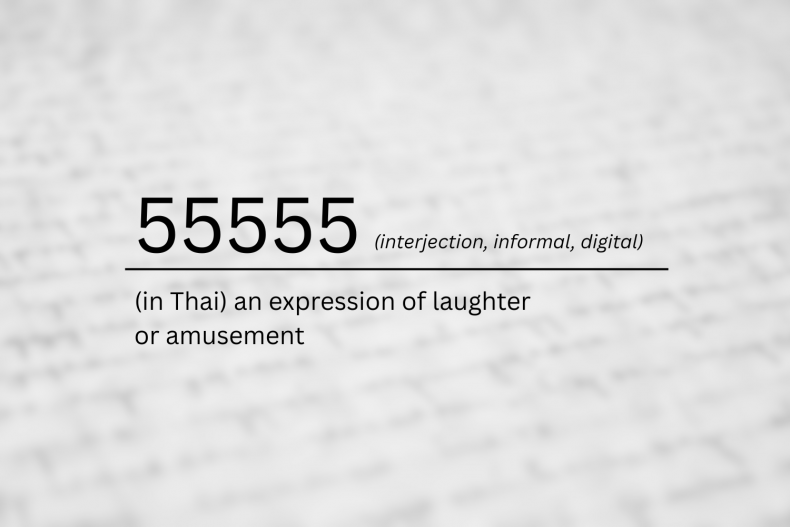Thai Digital Humor Explained
The Meaning Behind 5555
In Thailand’s vibrant online culture, typing “5555” is a common way to express laughter, akin to “lol” or “haha” in English. The number five, pronounced “hâa” in Thai, mimics the sound of laughter, making sequences like “555” or “5555” a phonetic stand-in for “hahaha.” The length of the fives often reflects the level of amusement, with longer strings signaling greater humor, though excessive repetition, such as 555555555, may hint at sarcasm rather than genuine mirth, depending on the context.
Variations in Expressing Laughter
Creative Twists on Digital Chuckles
Thai netizens employ diverse methods to convey laughter online, including “555+” for intense humor without typing endless fives, or “ฮ่า” (ha) in Thai script for a direct laugh sound. The repetition symbol “ๆ” (Mai Yamok) creates “ฮ่าๆๆๆ” for “hahahaha.” Some users accidentally type “ถถถถ” when forgetting to switch from Thai to English keyboards, as the “5” key corresponds to “ถ.” Others use traditional Thai numerals like “๕๕๕๕,” maintaining the same phonetic “hâa” effect, showcasing the playful adaptability of Thai digital communication.
Gen Z’s Evolving Laughter
Scattered Numbers for Fun
Younger Thais, particularly Gen Z, have introduced a quirky twist with sequences like “552525252525” or “565555656,” where random numbers are mixed with fives to mimic uncontrollable laughter, as if mistyping in a fit of giggles. This trend reflects the dynamic evolution of online humor, blending creativity with technology. These variations add a layer of expressiveness, allowing users to convey not just amusement but also personality, making Thai digital spaces lively and distinct.
Cultural Context and Social Impact
Laughter as a Social Tool
Beyond humor, “5555” serves as a conversational tool to soften requests, ease tension, or add warmth in online interactions, much like emojis in global digital communication. Its use varies by context, with a short “55” often signaling polite acknowledgment rather than hearty laughter. Understanding these nuances offers insight into Thai digital culture, where traditional language blends with modern platforms, fostering unique expressions of emotion and community in an ever-evolving online landscape.









